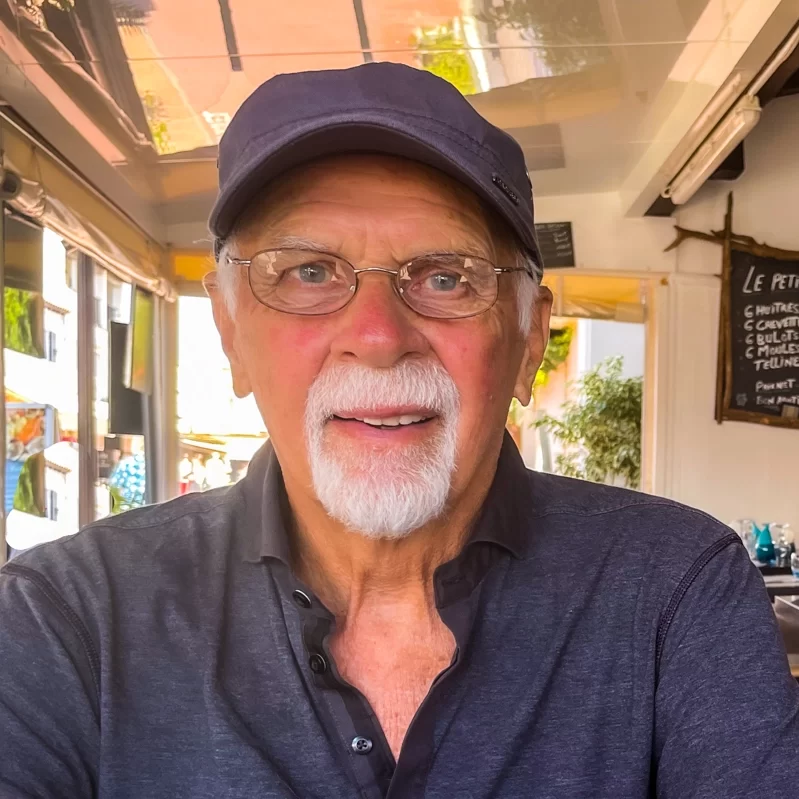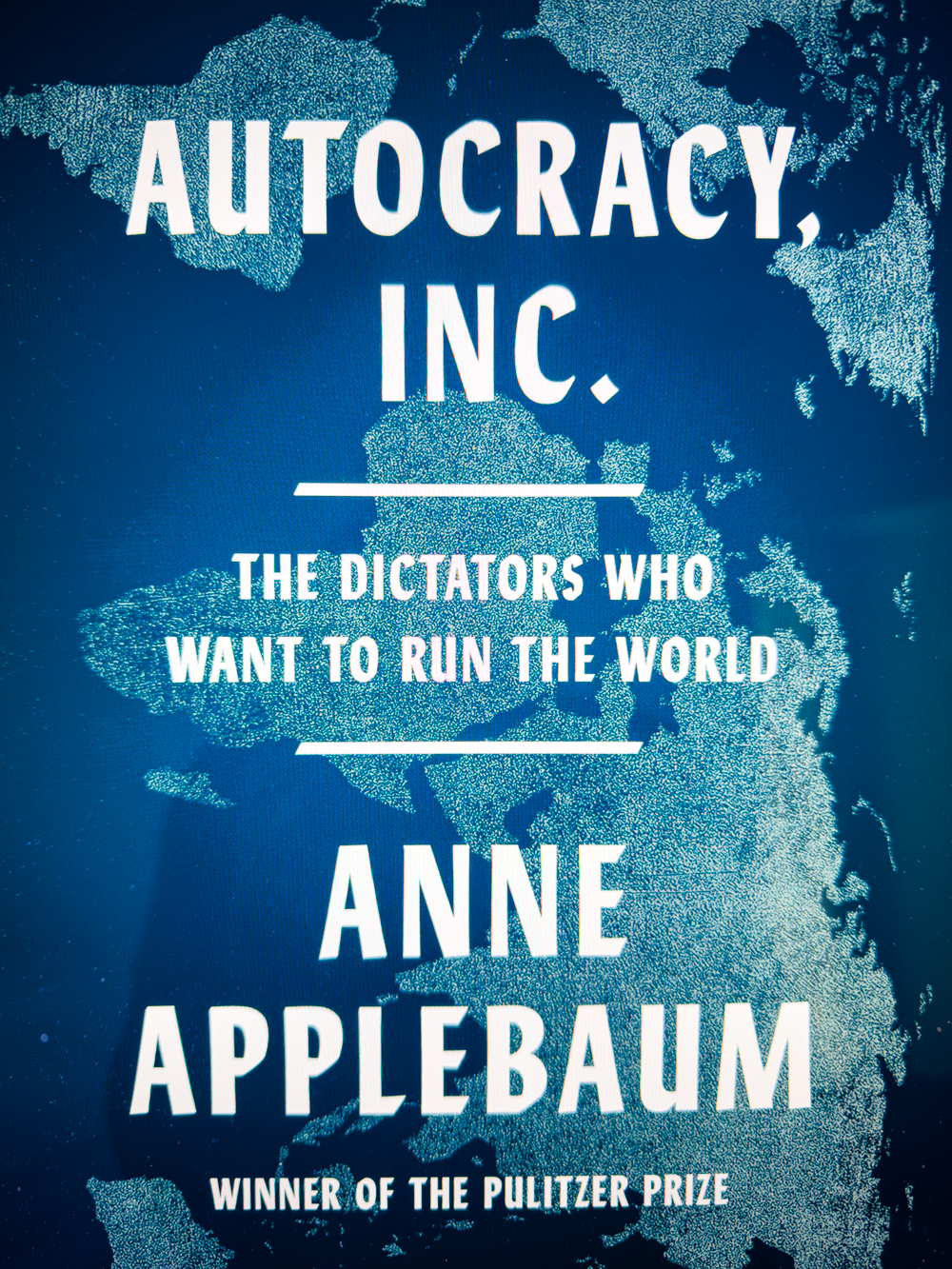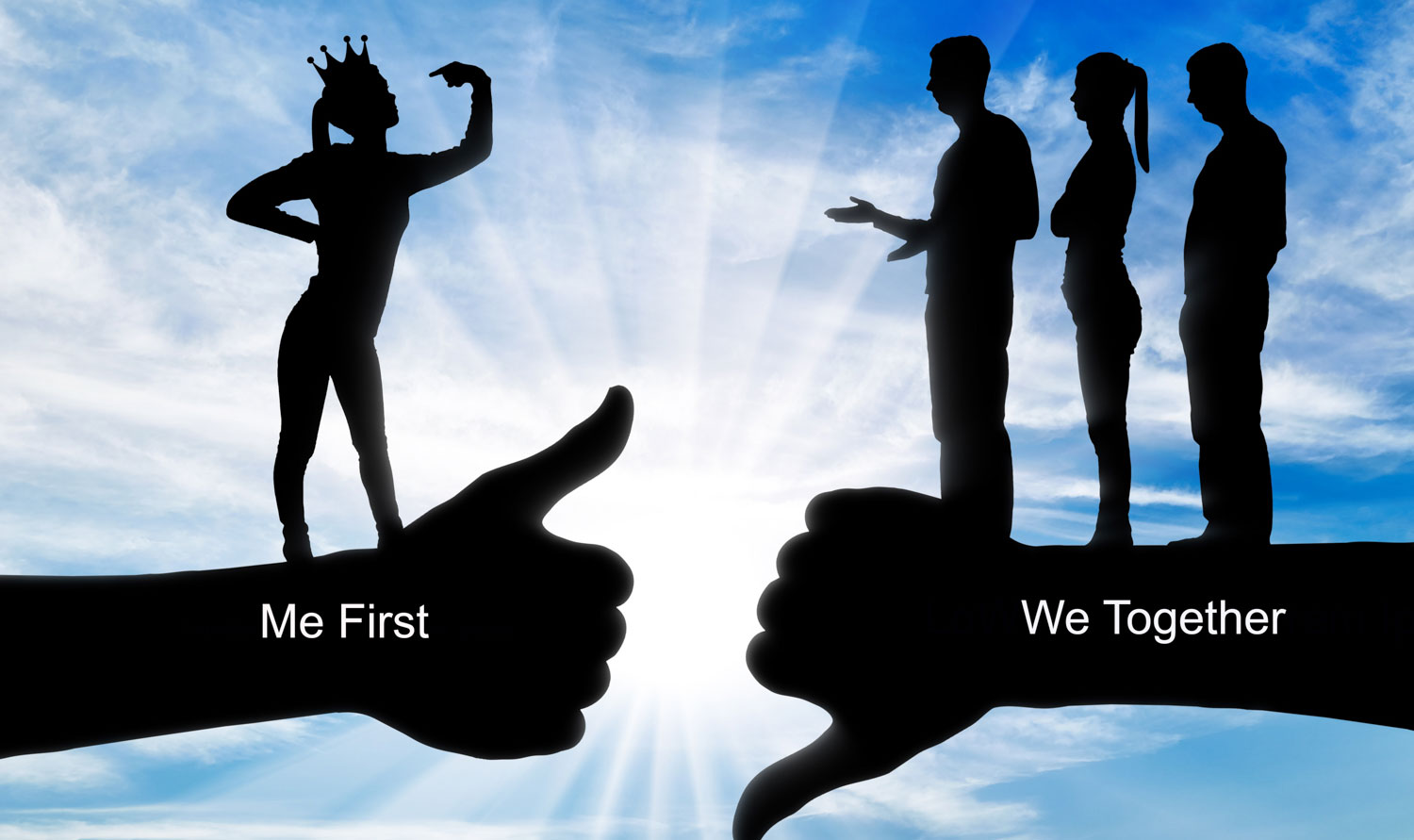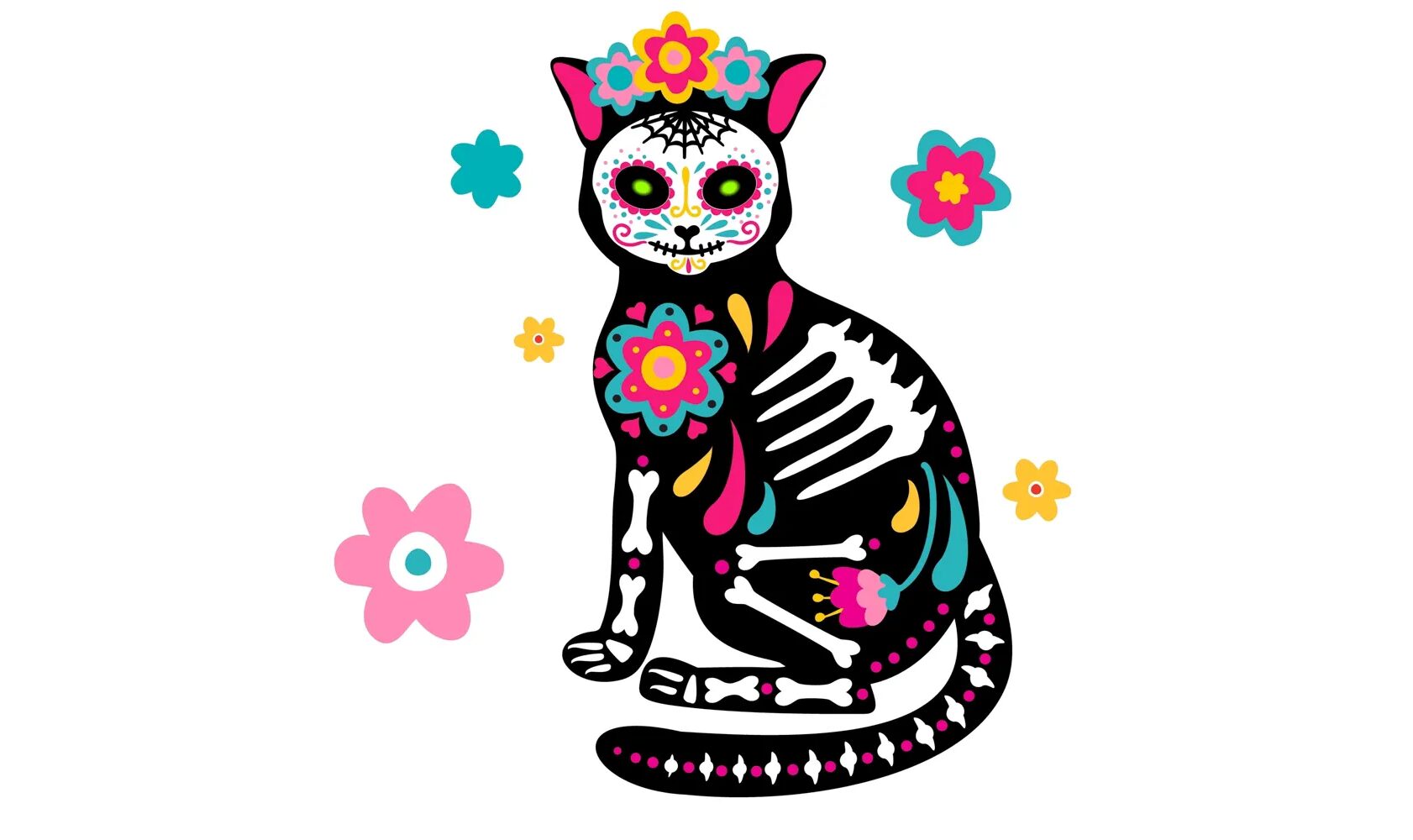The Toxic Triangle: A Perfect Political Storm
Unpuzzling the Forces of Democratic Backsliding

If you see a wild man yelling “I can save you!” and he’s running naked down New York City’s Fifth Avenue, worry for the man. If you see a crowd of people who have shed their clothes and are running after the man, shouting “Save me!”, worry for the followers.
Across the globe, many decent people are chasing after ruthless leaders who have long since abandoned all values of decency and humanity. We should worry about these followers and the fate of their nations.
We are losing democracies worldwide at an alarming rate. The International Institute for Democracy and Electoral Assistance (International IDEA) released its 2024 annual Global State of Democracy Report.
From 2019 to 2023, 82 countries—nearly half of the 173 countries covered in the study—experienced a decline in at least one key indicator of democratic performance. The IDEA report shows that 2023 is the seventh consecutive year in which nations experiencing democratic declines outnumbered those showing progress.
Losses have occurred in nearly all geographic regions: Europe, the Americas, Asia, Africa, and the Middle East.
The assaults on democracy include manipulated elections, weakening judicial independence, restrictions on civil liberties and the press, and consolidation of executive power – to name a few.
For those of us who want to live in liberal democratic societies, this is scary stuff.
There are no simple stories to explain democratic backsliding, but a well-developed framework can give us a big-picture perspective on why democracy is retreating.
The Toxic Triangle: A Three-Legged Stool for Autocrats
In 2007, political scientist Art Padilla and colleagues developed the “toxic triangle” model to explain how ordinary people elect autocratic leaders into office.
Three factors make up this “three-legged stool.”
- When the public perceives chronic social and environmental stress, the public will favor candidates who offer quick solutions to complex problems.
- Voters who are the most vulnerable to stress become the most ardent followers of leaders, usually toxic, who promise quick solutions to every problem. Opportunists will also take advantage of people’s fears and ride the coattails of toxic leaders.
- Leaders who amplify stress and promise simple solutions to reduce it become “toxic” when their solutions fail. Toxic leaders typically reap personal benefits from a failing society.
Leg 1. Stressful Environments
The “illusion of stress” among the voting public can take many forms. In any given society, there are voting blocks of people who react negatively to “existential uncertainty,” a fear of losing one’s life, livelihood, or reduced quality of life. This intolerance for uncertainty is a characteristic of many “conservatives” who resist change, prefer traditional lifestyles, and have negative views toward people whose values or appearance differ from their own.
When people believe that their lives will soon be challenged, they pull in and become even more conservative. This defensive response is mainly emotional. Fearful people do not deliberate on the small print of public policy. They are frightened and want a leader who will make their problems disappear.
Leg 2a. Conforming Followers
Fearful people have rigid social beliefs and are easily influenced by social media beliefs. They want a strong leader to take control of perceived danger and return life to a desired “normalcy.” They are susceptible to the message of “strongmen” who promise, “I alone can fix this.”
Strongmen are almost always men. People attracted to strongman rulers often align their values with those of the autocrat-in-waiting. The greater the follower’s exposure to the candidate autocrat, the greater the adoption of the ruler’s values and policy dictates. This value alignment occurs without deliberate thought by the followers, and it is strengthened through a constant barrage of partisan social media exposure.
Leg 2b. Collaborating Followers
Followers who collaborate with dominant “big fish” autocrats resemble pilot fish that depend on sharks for protection. The pilot fish (Naucrates ductor) is a relatively small species often swimming close to large predators. They stick near these powerful creatures to avoid other dangers and feed on leftover scraps. Pilot fish often swim so closely that they appear physically attached to the predators.
This relationship serves as a metaphor for less influential leaders who ride the coattails of authoritarian strongmen. These second-tier elites help the autocrat by enforcing oppressive measures and endorsing radical and highly partisan ideas that prove unsustainable. Whether collaborators are motivated by fear of being excluded or a hunger for whatever power is available, autocrats cannot operate without their loyal obedience.
Leg 3. Toxic Leaders
The third leg of the autocratic stool is the leader who promises to remedy his followers’ fears but ultimately leads them down a path to destruction. These toxic leaders have a distinctive set of personality traits that include narcissism, Machiavellianism, psychopathy, self-serving policies, manipulation of others, lack of empathy, unethical behavior, exploitation, charisma, and a willingness to create a climate of fear and intimidation to retain power.
This suite of negative personality traits is known as the dark triad, specifically referencing narcissism, Machiavellianism, and psychopathy. It is a well-studied phenomenon that characterizes not only toxic political leaders but also people who assume dominance in many different types of relationships: partner, domineering friend, boss, or local public official.
While the dark triad traits are more prevalent in men, they are not exclusively a male phenomenon. Toxic female leadership can undoubtedly stem from these traits. However, female leaders may be able to avoid being labeled as “toxic” simply because of gender stereotypes; women are not expected to be narcissistic and Machiavellian.
The Role of Charisma in the Appeal of Toxic Leaders – And the Consequences
You may be thinking about the negative characteristics of toxic leaders and wonder:
Who could be so foolish as to fall for the lies of an unlikeable leader?
The problem is that many people with dark personality traits become leaders because they are charismatic.
People who knew Adolph Hitler personally found him to be an unappealing figure. But at public rallies, Hitler could keep followers spellbound during his highly charged, emotional speeches. At rallies, followers enthusiastically snapped Sieg Heil salutes like loyal members of a personality cult.
World War II resulted in a grand total of 40-50 million deaths of soldiers, hapless citizens, Jews, and divergent people. Although highly speculative, we can ask:
Could WWII have happened without the unmatched toxic leadership of one man – Adolph Hitler?
Most historians agree that WWII would not have happened without Hitler’s charisma, strategic grandiosity, and depth of hatefulness. Some historians argue that Joseph Stalin might have had expansionistic leanings. By the late 1930s, Russia had 16 countries under control as part of the Soviet Union. Could Stalin have wanted more? We’ll never know.
Fast-forward to 2025, and we still see the effects of charisma mixing with the three-legged stool of the toxic triad. Vladimir Putin controls the Russian people with an iron fist that is strengthened by his total control over information fed to the public through the media.
Hungary, under the toxic leadership of Victor Orbán, has experienced democratic backsliding, with restrictions on media freedom, academic freedom, and the rights of minorities. Orbán has cultivated a cult of personality and demonized immigrants and political opponents. Although Orbán improved the first leg of Hungry’s stool (the economic environment), his charisma is fading, and his followers are considering other leadership. Orbán is unlikely to tolerate public dissent.
Then, we can look to the United States, which just elected Donald Trump to a second term as president. Trump was elected when the American economy was the strongest in the world. A strong economy means a strong first leg of the toxic triangle model. With a strong economy, how could an autocrat be elected to the U.S. Presidency?
The answer is that not all Americans were benefiting from America’s economic strength. This gives Trump wiggle room to promote himself through digital authoritarianism.
The New Age of Digital Authoritarianism
In any nation, economic prosperity is not uniform. Some grow wealthy and others live in poverty. The disparity between these extremes is known as wealth inequities. When large segments of a nation’s citizens believe that they are impoverished or their livelihoods are threatened, these disaffected citizens will begin to look for new leaders who promise to reverse their plight. These are the ripe conditions for the first leg of the toxic triangle that autocrats love – high stress environments.
In the 2024 election, Trump charmed 77.3 million Americans (49.4% of the voting public) into voting for him for a second term as president (Trump 2.0). He did this by lying about the strength of the U.S. economy and creating fear among susceptible followers through “dirty tricks” strategies, such as dead catting and gut terrorism.
Today’s backsliding of democracy is likely to worsen because of the effect of mass information technologies on the first leg of the toxic triangle – the social and physical environment that creates followers of autocrats. “Digital authoritarianism” describes how authoritarian regimes use digital tools—surveillance technologies, social media monitoring, internet shutdowns, and more—to consolidate power and suppress dissent.
Digital authoritarianism prevents citizens from turning to a new leader when they lose faith in their “Dear Leader.” The leader’s loyal collaborators control all information1 directed to and collected about the people. Through partisan social media, they promote only the regime’s successes—even if the economy and infrastructure are collapsing. Meanwhile, surveillance systems gather data on citizens, enabling authorities to suppress any actions that might threaten the leader’s power.
Digital authoritarianism prevents citizens from turning to a new leader when they lose faith in their “Dear Leader.” The leader’s loyal collaborators control all information directed to and collected about the people. Through partisan social media, they promote only the regime’s successes—even if the economy and infrastructure are collapsing. Meanwhile, surveillance systems gather data on citizens, enabling authorities to suppress any actions that might threaten the leader’s power.
Oligarchs play a critical role in supporting toxic leaders. They are collaborators extraordinaire. An example is Elon Musk, the world’s wealthiest man, who paid hundreds of millions to help Trump be elected. He is likely to see federal investigations into poor regulatory oversight go away.
Another example is Mark Zuckerberg, the founder of Facebook and the world’s third-richest man. Recently, he bowed to Trump’s demand and removed the fact-checker function from Facebook’s platform. He is no longer likely to be jailed, as Donald Trump had threatened.
Elon Musk and Mark Zuckerberg now join the ranks of social media oligarchs who do not constrain the information published on their platforms. Any toxic leader and their collaborators can spew whatever lie they wish, and it will be distributed to about 450 million monthly X followers and 3 billion Facebook subscribers.
Adolph Hitler’s Reich Minister of Public Enlightenment and Propaganda, Joseph Goebbels, once said:
“If you tell a lie big enough and keep repeating it, people will eventually come to believe it.”
Wrapping-Up
Whether beneficial or toxic, there is no such thing as a leader without followers. The toxic triangle model gives a perspective on how environmental conditions groom susceptible followers to embrace toxic leaders. Because of their charisma, toxic leaders are mistaken as caring strongmen.
. They offer simple solutions for complex problems. When these simple solutions fail, they control the media to project an image of success. Unless they are willing to see the Emporer wearing no clothes, followers will follow based on a blind faith that smacks of cultism.
There are no easy remedies to liberal democracies’ current global retreat, and illiberal populism is gaining popular support. The toxic triangle metaphor shows how all elements of this backsliding are interwoven. Poor environmental conditions create fearful citizens who follow toxic leaders who offer simple solutions that ultimately fail.
Improving environmental conditions will produce leaders who are more responsive to the people’s real needs. But when toxic leaders create partisan information that falsely overstates the health of the economy and its infrastructure, it becomes challenging, to say the least, to find beneficial leaders who can reverse the downward spiral.
Bringing back liberal democracy will require a diligent citizenry, persistence in debunking political lies, and willingness to think and talk deliberatively. Unfortunately, literacy rates are falling in nations where democracy is backsliding. The more that people, especially the young, watch mindless social media apps like TikTok, the less likely that followers of autocrats will become disillusioned with their failed leadership.
A recent study from the Pew Research Center speaks to this issue.
News consumption is also trending upward among TikTok users. Around half of TikTok users (52%) now say they regularly get news there, up from 43% last year and just 22% in 2020. TikTok users are now more likely to get news from TikTok than Facebook users are to get news from Facebook.
Because followers unwittingly elect toxic leaders, citizens must awaken from their dream of strongman solutions to their problems and face the reality of opportunities lost because of leaders who put their self-interests above all others.
Voters must learn that a democracy requires an educated public and that solutions to complex problems require many voices with divergent ideas – an ideal that will turn an autocrat with no followers into a puddle of water when hit by that wave.
See these related “unpluzzling” articles:
1 Comments
Leave a Comment
Unpuzzlings
THE LATEST PUZZLE
Test Book Vibes > Autocracy, Inc.: The Dictators Who Want to Run the World
by Anne Applebaum(2024). Haiti is widely regarded as a failed state. With 200 to 300 active criminal gangs, the nation’s economy, governance, political systems, and public services have all collapsed. In addition to instilling fear in the public, these gangs have also been engaged in conflicts with each other. By…
RELATED PUZZLES
You Want Liberty? Which One?
On March 25, 1775, at a church in Richmond, Virginia, an American patriot gave an impassioned speech to his fellow townsmen, urging…
Unpuzzling Political Terrorism: Dead Catting and Gut Messaging
The history of human civilization is the story of increasing exposure to information. Access has multiplied through evolving technologies: stone…
Autocrats Need You To Be Stupid. Are You OK With That?
Afghanistan’s post-occupation political landscape is today characterized by an authoritarian regime with unique ideological features, including the most severe restrictions…
When Religion Collides With Politics, Frozen Embryos Feel the Heat
Science and religion aren’t inherently at odds, but claiming their union is a bed of roses overlooks the thorns. Introduce…







5gjmzg